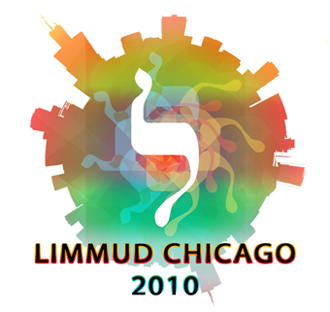Limmud Chicago: A Jewish communiversity
Permanent link All Posts

Remy Kaskel wasn’t nervous about the content of her talk about the Sh’ma, the prayer considered central to Judaism. She had presented a similar session two years ago. Mostly, she was anxious about people’s reactions when they saw the slight 14-year-old in front of the classroom. A student at Evanston Township High School, Kaskel taught one of about 100 sessions at the Feb. 14 Limmud Chicago, the international movement’s first local conference.
In the end, Kaskel needn’t have worried: her course on the Sh’ma, which addressed the prayer’s purpose, content and meaning, was the second most-attended session during her time slot. Participant Caroline Musin, a Jewish educator, said the session was among the most inspiring she had attended.
“She handled [the pressure] really well,” said Kaskel’s mother, Debra Yampol, a member of the Limmud Steering Wheel who was responsible for the food at the conference and also attended sessions together with her daughter. “Remy is following in the footsteps of her great-grandfather, who taught at a yeshiva when he was just 12. She’s the kind of person you feel blessed to know, let alone give birth to.”
Kaskel’s session fit perfectly into Limmud’s philosophy, which holds that everyone has something to teach and something to learn. The very name of the conference emphasizes knowledge acquisition—the Hebrew word limmud means learning.
“One of the things we were aiming for is a wide-enough variety of topics so that there would be at least one or two things that anyone could say, ‘I always wanted to learn about this,’” said educator and University of Chicago Divinity School graduate student Avi Finegold, who co-chaired this year’s conference. “Limmud is an immersive experience in the value of studying Judaism and Jewish text. [But] the ultimate goal is to enhance Jewish education beyond the one day.”
Nearly 400 participants of all ages in the 13-hour educational marathon discussed the interplay of the environment and Jewish festivals, got recipes for vegetarian food for Shabbat, analyzed mental health from a biblical perspective, danced, formed a drum circle, engaged in Israeli-Palestinian dialogue, explored Jewish spirituality, read Yiddish poetry and surveyed the archeology of Jerusalem, among other offerings. Meanwhile, children attended Camp Limmud, a series of fun and educational activities that had them creating hands-on art projects, playing, listening to storytellers and singing.
The idea to bring a variety of disciplines together arose in the United Kingdom more than 30 years ago, when Limmud was a conference for Jewish educators. The movement has spread internationally and now offers conferences throughout Europe and North America as well as in Israel, South Africa and throughout the former Soviet Union.
Even as attendees explored myriad subjects, many focused on the opportunity to improve their personal connection with Judaism and Jewishness.
Jacob Cynamon-Murphy, a Chicago software developer, heard about Limmud through his Birthright Israel NEXT reading group and decided that the conference offered an opportunity for him and wife Rebecca Cynamon-Murphy to continue their exploration of “how to merge our spiritual identities,” he said.
“We chose sessions that would give us some food for thought,” said Jacob Cynamon-Murphy, as he volunteered to direct people to sessions during a break.
Organizers hoped for similar reactions when putting together the Limmud roster, which they tagged as “taking you one step further on your Jewish journey.”
Plans for Limmud Chicago 2011, which will take place during Presidents Day Weekend, are already underway.



.jpg)



